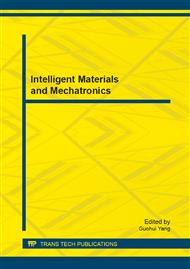p.310
p.316
p.323
p.328
p.333
p.338
p.345
p.352
p.358
Two Classes of Potential Games and the Solving Method of the Equilibria
Abstract:
Using the definitions of potential functions and ordinal potential functions of strategic form games, we characterize two classes of potential games and give the solving method of the equilibria of finite potential games by testing and verifying potential games. The main contribution is proving that public goods games and social coordination games based on location strategic interaction with an exogenous network are potential games, and giving the equilibria by the method of solving potential games and ordinal potential games.
Info:
Periodical:
Pages:
333-337
DOI:
Citation:
Online since:
November 2013
Authors:
Price:
Сopyright:
© 2014 Trans Tech Publications Ltd. All Rights Reserved
Share:
Citation:


